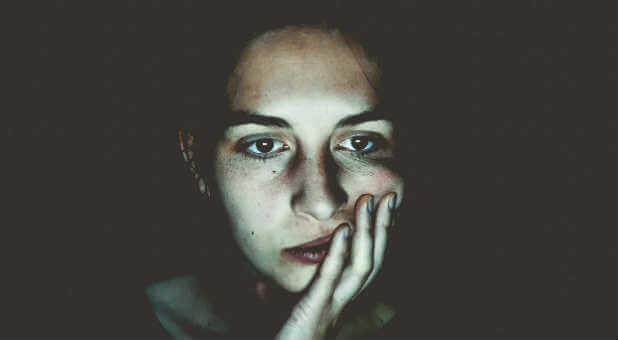My daughter was going to rehab. She had graduated from high school only a few months earlier. I didn’t want to believe it. I was so hard on myself. Guilt set up residence in my heart. When your child has a problem with alcohol or drugs, self-harm (an eating disorder, cutting and so forth), sexual promiscuity, same-sex identity, is incarcerated, has thoughts of suicide or a mental health issue, guilt is a common reaction. We, the parents, wonder if it’s somehow our fault.
There’s no rest from the questions that plague our minds:
“How could this happen to my child?” “Is it my fault?” “What did I do wrong? “What did I not do that I should have done?” “Could I have prevented this?”
The revolving door of What ifs and If onlys torments us. I could find no other way to answer these questions other than blaming myself. We tend to examine our parenting record, looking for that moment, the one mistake that flipped the switch. Why do we do this to ourselves? Guilt.
True or False Guilt?
Guilt is a natural response, yet it doesn’t solve anything. Our child’s issues remain the same and we feel hyper-responsible. But there’s one thing it does do very well: Guilt causes embarrassment that shames us into silence.
We erroneously believe if had we done a better job of parenting, our child would never have fallen into trouble or turned against God. That’s what I believed. We put all the blame on our heads, then we isolate, too embarrassed to let others know.
Mom, dad, if there is a valid reason for your guilt, then be honest with yourself, talk to someone about it—a trusted friend/pastor/counselor—then give it to God. He freely offers forgiveness to all who confess from a sincere heart.
Look what the Bible has to say about forgiveness:
“For your name’s sake, O Lord, pardon my guilt, for it is great” (Ps. 25:11, ESV).
“If we confess our sins, he is faithful and just to forgive us our sins and to cleanse us from all unrighteousness” (I John 1:9, MEV) and
“There is therefore now no condemnation for those who are in Christ Jesus” (Romans 8:1a).
If you’ve dealt with your guilt, but are still carry a heavy load of shame on your back, it’s false guilt. It’s from the devil, not God. He never expected us to be perfect. He knows we’re flawed people doing one of the toughest jobs on the planet—raising a child to adulthood in a fallen and sinful world. But we’re super-tough on ourselves, especially if we’re in ministry or a leadership role.
In some situations, we may need to ask our child to forgive us for things we’ve said, done or not done. This is by no means an excuse for their choices. Nor does it give them the right to put all the blame on us, but our humility and honesty may have a big impact on our relationship moving forward.
One word of caution: ask their forgiveness with no expectations of how they respond. Do it for the sake of your own soul, then leave the results with God. The benefit of this kind of forgiveness is for us–not for them.
Letting Go of Guilt
In one of our support groups, a mom shared, “We need to let our children own what is their part and we need to own what is ours. Beyond that, we need to refuse the rest! None of us were perfect parents, but we did the best we could!” She’s absolutely right. We must own what is ours, let them own what is theirs and refuse the rest.
I’m not where I once was in my struggle with guilt. Some days I relapse and torment myself again, wondering if there was something I could have done differently or not done that might have changed things. But I’ve dealt with what I believed was my part, asked God and my daughter to forgive me and am learning to be kind to myself. From now on, I’m refusing the rest and letting go of guilt.
What about you? {eoa}
Dena Yohe is the author of You Are Not Alone: Hope for Hurting Parents of Troubled Kids (2017). Co-founder of Hope for Hurting Parents, she is a blogger, former pastor’s wife and CRU affiliate staff. She and her husband, Tom, have been guests on “Family Talk With Dr. James Dobson,” “Family Life” with Dennis Rainey” and “Focus on the Family” with Jim Daly. A proud mom of three adult children, she loves being Mimi to her grandchildren. Find out more at HopeForHurtingParents.com.
This article originally appeared at hopeforhurtingparents.com.












